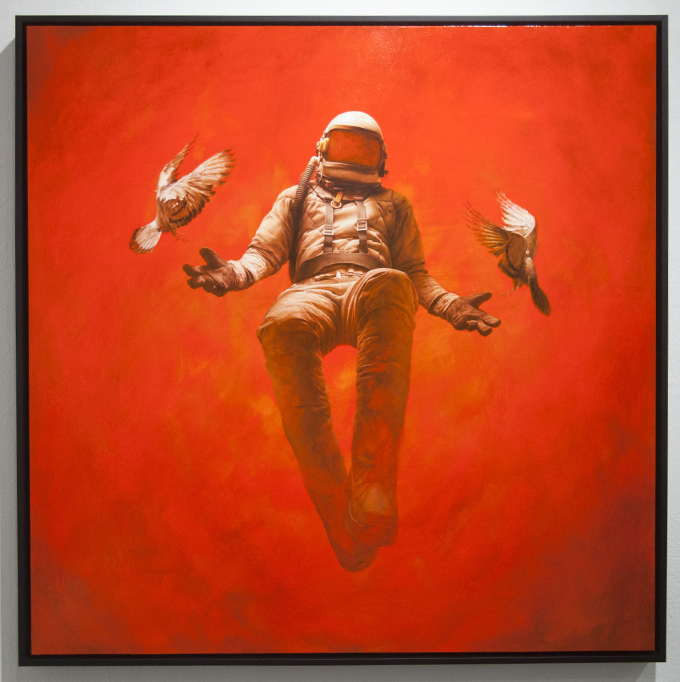In this, the final section of our seminar, I will ask you to draw personal conclusions about how you, I, or any other citizen should “live within the truth.” As always, I am thinking about “truth” in all of its bountiful and uplifting manifestations. In terms of citizenship, I am thinking especially of how we are obliged to act in both a flourishing liberal democracy as well as any other human community, such as Notre Dame.
24. Tuesday, April 12: Power of the Powerless I
What does it mean to live in a lie? The first half of Havel’s magnificent essay focuses on what it meant to live in a lie under the sclerotic authoritarian regimes of late communism. In the last few pages, Havel suggests that we may be doing the same thing in advanced democracies.

As you read the first part of this essay, ask yourself how his argument about “post-totalitarian” societies might apply to everyday life in a non-posttotalitarian society. When you get to chapters XX-XXII, you will see that Havel has exactly this idea in mind.
Vaclav Havel, “The Power of the Powerless.” This essay is in Open Letters. Read Parts I-VI, and XX-XXII
Havel’s essay is challenging. Read it very carefully and more than once; I am still discovering new things in his argument.
For this class, please do not focus on what Havel means by “living within the truth.” We will discuss that issue in our next class.
For an ironic, but interesting use of Havel’s argument, Michael Rectenwald,
“Living in the Age of COVID: “The Power of the Powerless” PRINT AND READ
What would Havel think of Rectenwald’s argument?
25. Thursday, April 14: Power of the Powerless II
The second half of Havel’s essay challenges us to live within the truth. What does it mean to live within the Truth? Why is it difficult to do so? Under what circumstances might we nevertheless be compelled to live within the Truth? This is a different question than asking about the desirability of living within the truth. It raises the question of what must happen in order for people to see no other option.
Vaclav Havel, “The Power of the Powerless,” Open Letters: Selected Writings, Parts VII-XXII.
Don McNeil, “Fauci on what working with Trump was really like,” New York Times, January 25, 2021 READ AND PRINT In my view, Fauci has embodied the aspiration to live within the truth. This is hard to accomplish when working with any political official, not just Trump.

A message from Arnold Schwarzenegger: WATCH This is a partisan video (albeit by a Republican about other Republicans) Politically speaking, make of it what you like. I am asking you to watch this video because of what Arnold has to say about 1) the impact of a culture of lies and 2) the Catholic idea of a “servant’s heart.”
Anyone who doubts the Terminator’s intelligence should read his book, Pumping Iron.
26. Tuesday, April 19: Movie and Class Dinner
Film: Francis Ford Coppola, “The Conversation”
Location: B062 Jenkins Nanovic Hall (Seminar), at 6:00 pm
27. Thursday, April 21
Truth in the Deepest Sense: Our Fellow Human Beings, Ourselves
For today’s final class, I would like to address two questions: 1) What does Truth mean in the deepest and most profound sense of the word; 2) What does this idea of truth tell us about how we should live our lives.
As you will have noticed, we read a lot of works by dead White men at the beginning of this course. Since I intend to end our class on the theme of Hope, it is fitting that we consider the works of three women who happen to be alive.
It will not be obvious how Amanda Gorman’s poem and Emily Scott’s and Rebecca Solnit’s short articles relate to Truth, Politics, and Democracy. But “obvious” is a terrible word. Great observations are never obvious. If they were obvious, they would have been made long ago. Thus, I will challenge you to make sense of all three women’s responses to the questions above. What does each have to do with truth, politics, and democracy.
Amanda Gorman, “The Hill We Climb” PRINT and READ and WATCH
Emily Scott, “Start looking and you’ll see roads all over the Bible” PRINT AND READ
Rebecca Solnit, “The Habits of Highly Cynical People” PRINT AND READ
Please print these readings and bring them to class to make the most of our final discussion.
Note from 4.21.22: As I was preparing for class, I discovered this powerful speech by Michigan State Senator Mallory McMorrow (ND ’08): HERE
.
Your Final Essay Assignment here
Ω
Ecclesiastes 9:11 “I returned, and saw under the sun, that the race is not to the swift, nor the battle to the strong, neither yet bread to the wise, nor yet riches to men of understanding, nor yet favor to men of skill; but time and chance happen to them all.”
No one ever asks me why I frequently include this passage at the end of my syllabi. Will you?
